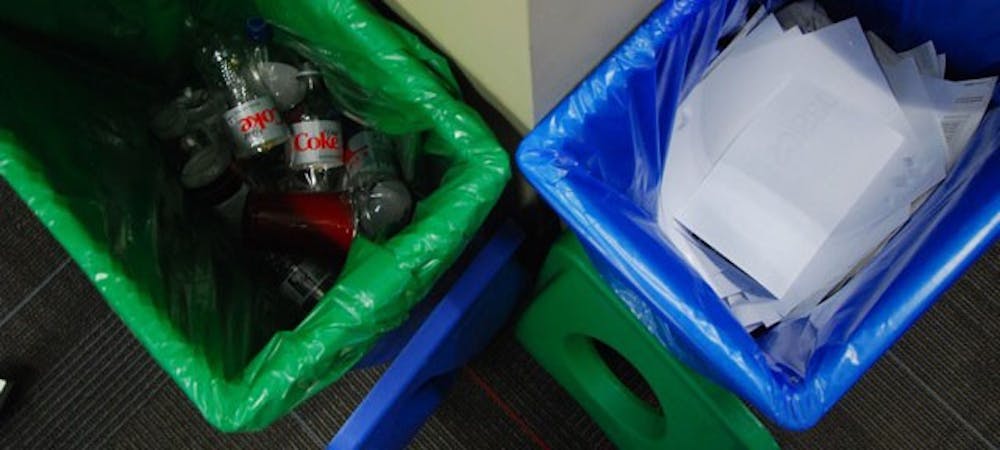A millennium ago, civilization believed the earth was flat. For centuries to follow, it was hotly debated whether the earth was the center of the universe. And today in the modern Information Age, there is still a mass following that thinks global warming is a hoax. Wake up 2013, the debate on global warming is over.
We can say whatever we please, but the facts remain indisputable: global warming is happening, and it is primarily anthropogenic. Whatever remains of the “debate” on the subject I adamantly refuse to join in as doing so assumes that both sides are equal options. I’m all for fair and balanced objectivity, but presenting the opposite side as a valid alternative is ignorant, archaic and dangerous. The longer we wait to squash this opposing viewpoints mindset the harder it will be to clean up our problems once we’ve realized our mistakes. As we work to shift the dialogue on global warming, we first and foremost have to establish what global warming actually is.
Let’s start with what it is not. Although climate change is affecting our weather, global warming is not validated by a hurricane, and it’s not negated by a snowstorm. These are singular weather events that must be removed from a conversation about climate. Global warming refers to the cumulative effect of greenhouse gases on earth’s temperature. The two main culprits—carbon dioxide and methane gas—are man-made. These gases build up in our atmosphere, trapping the sun’s light, reflecting it back to earth and heating up our planet. Yes, the symptoms of an overheated planet include record high temperatures, but they can also include frigid ones. This is because global warming is by definition global—taking into account all of Earth’s heat content, including ocean temperatures. NASA, an agency of the United States government, has recorded the earth’s global temperature every year since 1880 showing that the last decade alone is currently the warmest one ever recorded.
Some like to point out that the earth naturally goes through temperature cycles, and the current fuss over global warming is nothing new. Not so. Over the past 650,000 years our planet has been in and out of seven eras of glacial advance and retreat. These eras happened naturally based on Earth’s orbit toward the sun, but while these changes occurred over hundreds of thousands of years, the current warming trend spiked in just the thousand. Moreover, science proves there is in fact correlation between the global temperature and the amount of Carbon Dioxide in the air. We have never seen CO2 levels go beyond a certain point over the past 650,000 years —but the data skyrockets in the 1950s, and clearly shows that as CO2 is increasing, so is the global temperature. Coincidence? I think not.
Scientists do think that some extreme weather events and climate change are linked. Hotter air around the globe expedites water evaporation, inducing heavier rainfall and snowstorms. Heavy bouts of precipitation instead of light, consistent ones, also induce periods of drought and can lead to wildfires. Warmer air also means melting glaciers and ice sheets. Scientists predict that as the Greenland and Antarctic ice caps melt sea levels could rise 20 feet, completely submerging low-lying areas like Miami and Lower Manhattan. There’s also potential for conflict, particularly among countries that depend on “melt water,” meaning melting glacial ice that feeds into a major body of water. The Washington Post reports that the Himalayan glaciers, which provide 500 million people with irrigation and drinking water from the Ganges river, are shrinking significantly. It’s not going to be pretty when these water sources run low enough that people have to begin migrating to other countries to find water. Think the Darfur Conflict, which was fueled by water scarcity after a severe period of droughts. Recently, computer modeling has linked rain patterns over Africa to ocean temperatures, which science tells us have been affected by our heating planet. An article from The Guardian says it best: “In other words, droughts in Africa may be caused less by its hapless inhabitants and more by oversize cars and cheap flights in Europe and the U.S.”
So why is global warming still a talked about like it’s in question? Simple: because people are paying to keep it that way. Those with vested interest, such as the fossil fuel industry, and the special interest groups and think tanks it funds, will spend top dollar to create doubt about global warming. For example, just last year The Wall Street Journal amplified its antagonistic attitude toward global warming by publishing an opinion piece, signed by 16 scientists, that Forbes magazine called “flawed and misleading.” When 255 members of the United States National Academy of Sciences, one of the nation’s most reputable scientific agencies, responded with a separate letter The Wall Street Journal wouldn’t publish it. A little research leads to the discovery that The Journal is owned by the world’s second largest media conglomerate, News Corporation, whose CEO is Rupert Murdoch, who is an oil investor. Ding, ding, ding — we have a winner.
President Obama said it boldly in his second inaugural speech, in which he addressed climate change: “Some may still deny the overwhelming judgment of science, but none can avoid the devastating impact.” Here’s to hoping that the debate on global warming is long over, and that our generation can be the one to turn our climate around. The world isn’t flat, we aren’t at the center of the solar system—and yes, global warming is real.


